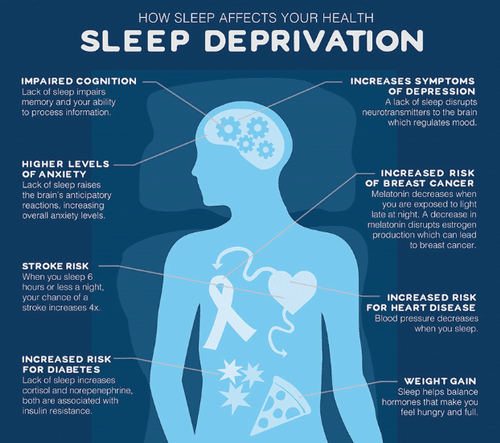Sleep deprivation is a serious issue that affects many individuals in today’s fast-paced world. With hectic schedules and demanding lifestyles, getting enough sleep has become a challenge for countless people. The consequences of sleep deprivation are far-reaching and can impact both mental and physical well-being.
The Effects of Sleep Deprivation on Mental Health

One of the most significant impacts of sleep deprivation is on mental health. Lack of sleep can lead to increased levels of stress, anxiety, and depression. Research has shown that individuals who consistently struggle with sleep find it more challenging to cope with daily life stressors, increasing the risk of developing mental health disorders. Therefore, ensuring an adequate amount of sleep is crucial for maintaining good mental well-being.
The Impact on Physical Health

Not only does sleep deprivation have adverse effects on mental health, but it also takes a toll on the physical aspect of our well-being. Lack of sleep has been linked to increased risk of various chronic conditions, including heart disease, obesity, and diabetes. It can weaken the immune system, making individuals more susceptible to illnesses and infections. Furthermore, sleep deprivation can negatively impact hormone regulation and increase the risk of hormonal imbalances.
The Importance of Seeking Solution

In order to recover from sleep deprivation, it is essential to seek effective solutions. Creating a healthy sleep routine and maintaining a consistent sleep schedule can significantly improve the quality and duration of sleep. Practicing good sleep hygiene, such as avoiding electronics before bedtime and creating a peaceful sleep environment, can also promote better sleep.
Understanding the Consequences

It is vital to understand the consequences of sleep deprivation in order to prioritize sufficient rest. Sleep deprivation can impair cognitive function, including memory, concentration, and decision-making abilities. This can have a significant impact on work productivity and academic performance. Additionally, chronic sleep deprivation can contribute to an increased risk of accidents and injuries, both at home and in the workplace.
In conclusion, sleep deprivation is a serious issue that should not be taken lightly. Its effects on both mental and physical health are significant and can have long-term consequences. By prioritizing sleep and adopting healthy sleep habits, individuals can recover from sleep deprivation and improve their overall well-being.


